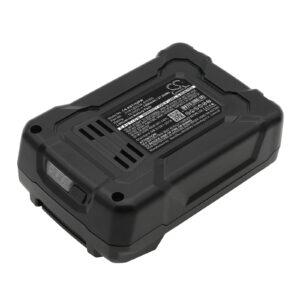-
$74.70
HP 416996-131, 416996-441, 432974-001, 434674-001, 434877-141, 448007-001, EV087AA, EX942AA, HSTNN-IB34, HSTNN-IB40, HSTNN-LB33, HSTNN-Q21C CS-HDV9000NB
HP14.4VHP
$74.70DELL 0VCTWN, 268X5, 312-1257, 312-1258, 451-11845, H2XW1, H7XW1, JD41Y, N2DN5 CS-DEN311NB
DELL11.1VDELL
$74.70Meister Craft BBR 180LI-ION/5I(CNM)R18/65, BBR180 CS-MAS180PW
Meister Craft18.0VMeister Craft
$74.81HP 3GB60EA, 924844-421, 924961-855, CR03049XL, CR03049XL-PL, CR03XL, HSTNN-LB8D, TPN-Q198 CS-HPR304NB
HP11.55VHP
Lithium batteries come in various chemistries, including lithium-ion (Li-ion), lithium polymer (LiPo), and lithium iron phosphate (LiFePO4). Each chemistry has its own set of characteristics, such as energy density, safety, and cost.
Energy Density: One of the primary advantages of lithium batteries is their high energy density, which means they can store a significant amount of energy in a relatively small and lightweight package. This makes them ideal for portable devices where size and weight are crucial factors.
Rechargeability: Lithium batteries are rechargeable, allowing users to charge and discharge them multiple times. They have a relatively low self-discharge rate, which means they can hold their charge for extended periods when not in use.

Get 5% off
Enter your email below and coupon code will be automatically applied to your shopping cart.
















